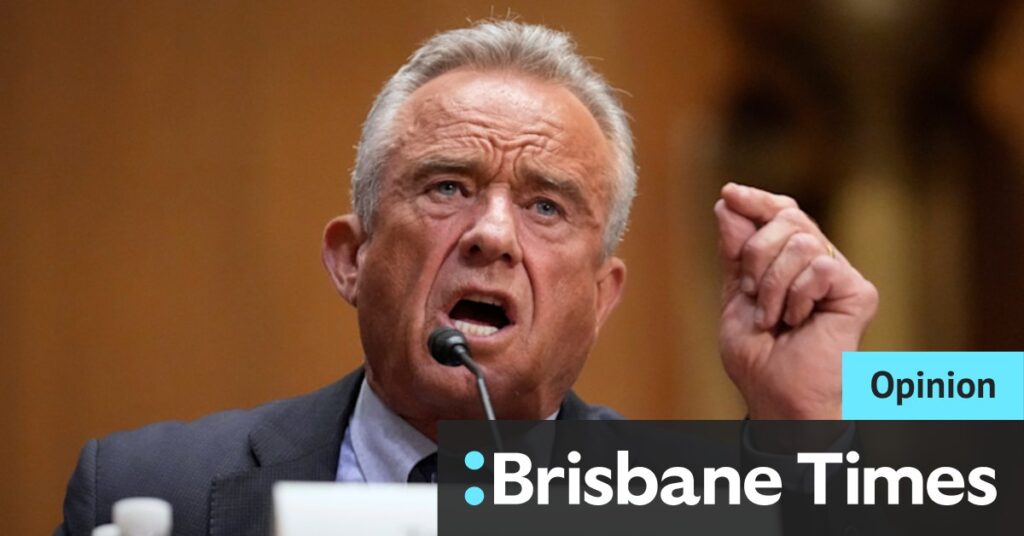
In recent weeks, a controversial decision by Florida’s health authorities has reignited the national debate over vaccine mandates, leaving many parents and health professionals concerned. Florida’s Surgeon General, Joseph Ladapo, announced a plan to “end all vaccine mandates,” a move that could significantly alter the landscape of public health in the state. This decision, unveiled at a press conference, means children in Florida may no longer be required to receive vaccines for diseases like measles, mumps, chickenpox, and polio before attending school.
The announcement comes as a stark contrast to the experiences of many who have witnessed the devastating effects of diseases now preventable by vaccines. For instance, the personal history of one family illustrates the impact of polio, a disease that claimed the life of a mother in Australia before vaccines were introduced. Her story is a poignant reminder of the era before vaccinations became a cornerstone of public health.
Florida’s Controversial Policy Shift
Joseph Ladapo’s declaration at the press conference was met with applause from anti-vaccine advocates but drew sharp criticism from medical professionals. Ladapo questioned the government’s role in mandating vaccines, framing it as an infringement on personal freedom. “Who am I, as a government or anyone else, to tell you what you should put in your body?” he asked, suggesting that such decisions should be personal and spiritual.
The Florida Department of Health later clarified that the plan would lift mandates on school vaccines for hepatitis B, chickenpox, Hib influenza, and pneumococcal diseases like meningitis, with the changes expected to take effect in about 90 days. However, removing mandates for diseases such as polio and measles would still require legislative approval.
Public Health Concerns and Reactions
The American Medical Association (AMA) has voiced strong opposition to the policy change, warning that it could undermine decades of public health progress. Sandra Adamson Fryhofer, representing the AMA, stated, “Ending all vaccine mandates would place children and communities at increased risk for diseases such as measles, mumps, polio, and chickenpox, resulting in serious illness, disability, and even death.”
“While there is still time, we urge Florida to reconsider this change to help prevent a rise of infectious disease outbreaks that put health and lives at risk.” — Sandra Adamson Fryhofer, AMA
Even before Florida’s announcement, healthcare professionals nationwide were alarmed by declining vaccination rates and the spread of vaccine misinformation. Many fear a resurgence of preventable diseases, with pediatricians like Perri Klass expressing concern over the potential for preventable tragedies.
National Implications and Historical Context
This development follows a broader trend of vaccine skepticism in the United States, exacerbated by figures like Health Secretary Robert F. Kennedy Jr., known for his controversial stance on vaccines. During a recent Senate hearing, Kennedy faced criticism for failing to safeguard vaccine access and for his decision to dismiss the head of the Centers for Disease Control and Prevention.
Historically, vaccines have been a cornerstone of public health, credited with saving millions of lives globally. According to the World Health Organization, vaccines have prevented at least 154 million deaths in the past 50 years, predominantly among children. The eradication of diseases like polio in many parts of the world stands as a testament to their efficacy.
“Time and again, in country after country, science has proven that vaccines save lives.” — World Health Organization
Despite the overwhelming evidence supporting vaccines, the current climate in the U.S. reflects a growing tension between public health imperatives and individual freedoms. This tension is manifesting in policy shifts that could have far-reaching consequences for public health.
Looking Ahead
The move in Florida represents a significant shift in public health policy, one that could set a precedent for other states. As the debate continues, the implications of lifting vaccine mandates will likely be closely monitored by both supporters and critics. The coming months will reveal whether Florida’s decision will lead to increased outbreaks of preventable diseases or if it will prompt a reevaluation of vaccine policies nationwide.
As the situation unfolds, public health officials, parents, and policymakers will need to grapple with the balance between individual choice and community safety, a challenge that remains at the heart of the vaccine debate.







